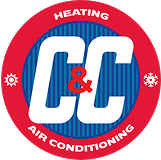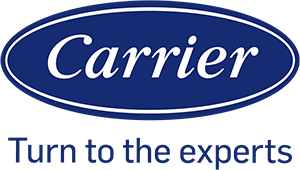Now that summer is quickly approaching in the Greater Metro Detroit, MI area, it’s time to start thinking about summer HVAC maintenance essentials. Once the temperatures really start to creep up, you’ll be happy knowing that you can rely on your cooling equipment to keep you and those who live with you comfortable. Maintenance can not only keep you comfortable in extreme weather but also increase the overall efficiency of your system.
Test Your Air Conditioner
Before the temperatures start to get hot outside, turn your air conditioner on to see if it works. Some people wait until a heat wave to switch from heating to cooling, only to find out that their air conditioning isn’t working properly. Even if your system turns on, make sure there aren’t any concerning sounds or startup issues to make note of. It’s perfectly normal if you notice a slight dusty smell coming from your vents for the first few minutes of running time. This is occurring since you haven’t run your air conditioner in many months. Some dust and particulates have built up over time. However, you shouldn’t notice a burning or chemical smell.
Prepare Your Thermostat Schedule
If you have a programmable thermostat, make sure that you have a proper schedule set for the coming months. You can alter your indoor temperature according to when you’ll be coming and going. For instance, if you’re going to be at work all day, you can raise your indoor temperature a few degrees. This will save you money on your monthly utility bills. Shortly before you arrive home again, have the temperature change to something more comfortable. In the evening hours, you should be able to make use of the cooler temperature outside, running your air conditioning equipment less.
Change Your Filter
Most HVAC filters require replacement once every 30 to 90 days. The exact time frame will depend on the type of filter that you have and the frequency at which you run your system. Once the season changes from cold to warm, change your filter so you’re starting out with fresh filtration. If you’re susceptible to seasonal allergies, consider monthly filter changes throughout the summer. You may even want to upgrade your filter to something that will remove more particulates from your indoor air.
Schedule Routine Maintenance
Don’t wait until the middle of the summer to schedule a routine maintenance appointment. You should set this appointment for as early as possible. An HVAC technician will inspect your equipment, clean interior components, make minor repairs, and ensure that your system is ready to keep you comfortable all summer. By catching minor issues early on, a professional can save you a lot of time and money you might otherwise need to spend on major repairs.
Inspect Your Registers
Take a quick walk through your home to ensure all registers and intake vents are clear and open. If airflow isn’t optimal, this can strain your system, leading to a need for repairs. You can also take this opportunity to wipe down your vents and registers to remove any dust that’s accumulated. This will improve your indoor air quality and keep your home cleaner.
Inspect Outdoor Equipment
Survey your outdoor equipment to ensure that it’s clear of debris. Sticks, leaves, weeds, and tall grasses can all negatively affect how your equipment functions. You should also look for signs of damage from the winter. This can include dents, cracks, rust, or frayed electrical wires. Repairs should be immediately scheduled if you notice anything.
Look for Moisture Accumulation
Once you have turned on your cooling equipment for the season, inspect for signs of water pooling. This can occur if there is an issue with your drip pan or condensate drain line. A professional can unclog your drain line, replace or repair your drip pan, and address any other issues that may be causing a leak. Low refrigerant levels in your air conditioner can cause moisture accumulation as well as reduce your system’s cooling ability.
Assess Humidity Levels
It’s very common for humidity levels to rise in a Macomb County home during the summer. Even if your cooling equipment is working sufficiently, high humidity can lead to an increase in allergies, discomfort, and even damage to your home. Mold can thrive in a moist environment, which is why it’s imperative that you know where your humidity level falls. You can use a simple store-bought hygrometer to check relative humidity levels. It’s recommended that your home have a relative humidity level between 30% and 50%. If you’re experiencing higher levels of humidity in the summer months, a whole-home dehumidification unit can bring levels back down. By using equipment intended for use with your cooling equipment and HVAC system, you avoid having to maintain a portable unit that only removes moisture from one small area at a time. There’s very little maintenance with a whole-home dehumidifier, and this unit can be part of your yearly maintenance appointment.
Consider Your Indoor Air Quality
Indoor air quality is extremely important and can impact your health. If you’re dealing with many contaminants in your indoor air, this can increase allergy symptoms and make you feel ill. In addition to scheduling routine maintenance, you may want to consider having an indoor air quality assessment performed. This process will check for things like mold spores, dust, pet dander, volatile organic compounds, and more. Your HVAC technician can educate you on the various ways that you can improve your indoor air quality. This may include addressing humidity levels or installing air purification equipment.
Utilizing Air Purification
If your indoor air isn’t as healthy as you would like it to be, an HVAC professional can help you determine different ways that you can address this issue. Whole-home air purification devices can remove a substantial number of particulates from the air that you’re breathing. They can even get rid of bacteria and pathogens that are making your household members sick. There are different options available, including units with HEPA filtration. HEPA filters can remove as much as 99.9% of the particulates that are in your indoor air. Carbon filtration is also a great option. It helps freshen the smell of your indoor air by removing volatile organic compounds, smoke, particles, and more. UV light filtration is a technology that is often added to air purification devices. It’s an excellent option if you’re concerned with potential mold exposure in your home.
If you’d like to learn more about the different summer essential HVAC maintenance tasks that are available to you, reach out to the team at C & C Heating and Air Conditioning for assistance. Not only do we take care of routine maintenance for homes and businesses in Roseville and the surrounding area, but we also address new heating and cooling equipment installation, emergency repairs, indoor air quality services, and the installation of ductless mini-splits.
Reach out to C & C Heating and Air Conditioning today to schedule an appointment!






